African American Billionaires - Building Wealth and Shaping the Future
African American billionaires represent a powerful example of perseverance, innovation, and success. Their stories highlight remarkable achievements in various fields, from technology and entertainment to sports and finance. These trailblazers not only amass wealth but also contribute to economic empowerment and inspire the next generation of leaders.
Who Are the African American Billionaires?
As of recent years, the number of African American billionaires has steadily grown, though it remains a small percentage of the billionaire class. Here are some prominent names: 1. Robert F. Smith- Net Worth: Estimated at over $10 billion.
- Industry: Private Equity.
- Key Achievements: Founder of Vista Equity Partners, Smith is known for his groundbreaking investments in technology-focused companies. He gained widespread recognition for paying off the student loan debt of Morehouse College’s 2019 graduating class.
- Net Worth: Approximately $2.8 billion.
- Industry: Media and Entertainment.
- Key Achievements: The "Queen of All Media," Oprah’s success spans television, film, publishing, and philanthropy. She is a trailblazer in creating content that empowers and inspires audiences.
- Net Worth: Fluctuates; peaked at $2 billion before partnerships shifted.
- Industry: Music, Fashion, and Business.
- Key Achievements: Known for his Yeezy brand in partnership with Adidas, Kanye leveraged his influence in music and fashion to create a multi-billion-dollar empire.
- Net Worth: Over $2.5 billion.
- Industry: Music, Business, and Investments.
- Key Achievements: From his beginnings as a rapper to becoming a global business mogul, Jay-Z owns Roc Nation, stakes in companies like D’USSÉ cognac, and investments in real estate and startups.
- Net Worth: Over $1.7 billion.
- Industry: Music and Beauty.
- Key Achievements: Rihanna’s Fenty Beauty brand disrupted the beauty industry with its focus on inclusivity, while Savage X Fenty redefined lingerie.
 6. Tyler Perry
6. Tyler Perry
- Net Worth: Estimated at $1 billion.
- Industry: Entertainment and Media.
- Key Achievements: Perry’s self-made fortune comes from his Tyler Perry Studios and extensive film and television productions. He’s a pioneer in creating content by and for African American audiences.
How African American Billionaires Are Changing the Narrative
Economic Empowerment Many African American billionaires focus on uplifting their communities:- Robert F. Smith: His philanthropy targets education and entrepreneurship in underserved communities.
- Oprah Winfrey: Her Leadership Academy for Girls in South Africa provides opportunities for young women to thrive.
Challenges on the Path to Wealth
Despite their success, African American billionaires have faced systemic challenges:- Access to Capital: Historically, African Americans have had limited access to funding and investment opportunities.
- Racial Bias: Stereotypes and discrimination can create additional hurdles in business and media.
- Wealth Disparities: Bridging the gap requires systemic change to address economic inequality.

Inspiring the Next Generation
African American billionaires are not just building wealth; they are fostering a legacy of inspiration and opportunity:- Philanthropy: Investments in education, housing, and entrepreneurship provide pathways for others to succeed.
- Mentorship: Sharing their stories and providing guidance helps aspiring entrepreneurs navigate challenges.
- Who was the first African American billionaire? Oprah Winfrey became the first African American billionaire in 2003 through her success in media and entertainment.
- How many African American billionaires are there today? The number varies over time, but as of recent estimates, there are fewer than ten African American billionaires worldwide.
- Who is the wealthiest African American billionaire? Robert F. Smith, with an estimated net worth exceeding $10 billion, is the wealthiest African American billionaire.
- What industries do African American billionaires dominate? They are prominent in private equity, media, entertainment, fashion, beauty, and sports.
- How did Oprah Winfrey build her fortune? Oprah leveraged her talk show, production company, and ventures in publishing, cable networks, and partnerships to amass her wealth.
- What makes Robert F. Smith’s contributions significant? As the founder of Vista Equity Partners, Smith revolutionized private equity investments in tech, while his philanthropy focuses on education and economic empowerment.
- How did Rihanna become a billionaire? Rihanna achieved billionaire status through her Fenty Beauty cosmetics brand, Savage X Fenty lingerie line, and music ventures.
- What role does Jay-Z play as an African American billionaire? Jay-Z has built a diversified portfolio, including music royalties, Roc Nation, investments in startups, and luxury brands like D’USSÉ cognac.
- What impact has Tyler Perry had on the entertainment industry? Tyler Perry owns one of the largest film studios in the U.S., producing content that amplifies African American stories while creating jobs for underrepresented groups.
- What challenges have African American billionaires faced? They’ve overcome systemic barriers such as racial discrimination, lack of access to capital, and underrepresentation in certain industries.
- How do African American billionaires give back to their communities? Through philanthropy, scholarships, mentorship programs, and funding initiatives aimed at reducing economic disparities.
- What businesses made Kanye West a billionaire? Kanye’s Yeezy brand, in partnership with Adidas, was a major driver of his wealth, alongside his music catalog and other ventures.
- Are there any African American female billionaires besides Oprah and Rihanna? As of now, Oprah Winfrey and Rihanna are the most notable African American female billionaires.
- How does representation among African American billionaires inspire others? Their success challenges stereotypes, provides role models, and demonstrates that significant wealth and influence are achievable.
- What is the future of African American billionaires? As barriers continue to break, the number of African American billionaires is expected to grow, driven by innovation, entrepreneurship, and investment opportunities.
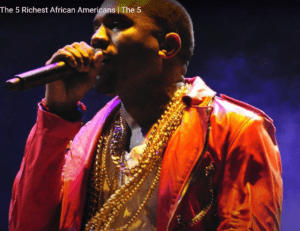
https://howtoplaythedjembedrums.com/african-american-billionaires/

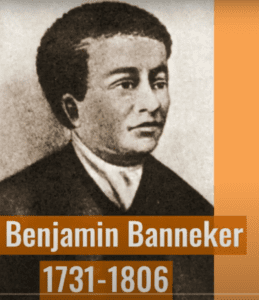 In recent years, there has been a growing recognition of the importance of diversity in STEM (Science, Technology, Engineering, and Mathematics) fields, which has highlighted the need to celebrate and promote the work of African American mathematicians. By examining their contributions, we not only honor their legacy but also inspire future generations to pursue careers in mathematics and related fields. This introduction sets the stage for a deeper exploration of the notable figures within this community, the barriers they faced, and the promising future that lies ahead for
In recent years, there has been a growing recognition of the importance of diversity in STEM (Science, Technology, Engineering, and Mathematics) fields, which has highlighted the need to celebrate and promote the work of African American mathematicians. By examining their contributions, we not only honor their legacy but also inspire future generations to pursue careers in mathematics and related fields. This introduction sets the stage for a deeper exploration of the notable figures within this community, the barriers they faced, and the promising future that lies ahead for 

 Frequently Asked Questions (FAQs) about African American Mathematicians
1. Who are some notable African American mathematicians?
Answer:
Some prominent African American mathematicians include:
- Benjamin Banneker: A self-taught mathematician and astronomer known for his work in surveying and almanac-making.
- Mary Jackson: The first African American female engineer at
Frequently Asked Questions (FAQs) about African American Mathematicians
1. Who are some notable African American mathematicians?
Answer:
Some prominent African American mathematicians include:
- Benjamin Banneker: A self-taught mathematician and astronomer known for his work in surveying and almanac-making.
- Mary Jackson: The first African American female engineer at 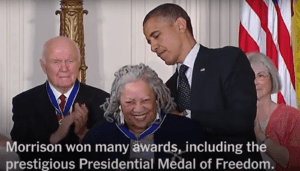 In addition to celebrating literary achievements, these awards play a crucial role in shaping the discourse around race, identity, and representation within literature. They challenge the literary canon and encourage a more inclusive understanding of what constitutes literary merit. As we explore the major awards in African American literature and their implications for authors and the literary community, it becomes clear that these accolades are not just trophies; they are instrumental in promoting dialogue and advancing the visibility of Black voices in literature.
In addition to celebrating literary achievements, these awards play a crucial role in shaping the discourse around race, identity, and representation within literature. They challenge the literary canon and encourage a more inclusive understanding of what constitutes literary merit. As we explore the major awards in African American literature and their implications for authors and the literary community, it becomes clear that these accolades are not just trophies; they are instrumental in promoting dialogue and advancing the visibility of Black voices in literature.

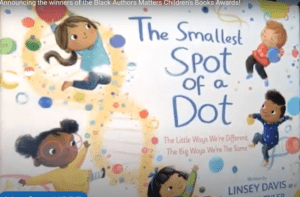
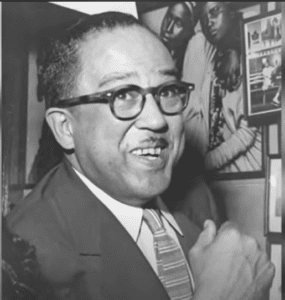 Langston Hughes emerged as one of the leading voices of the Harlem Renaissance, known for his innovative and poignant poetry. His works encapsulated the struggles, joys, and aspirations of African Americans during a time of intense
Langston Hughes emerged as one of the leading voices of the Harlem Renaissance, known for his innovative and poignant poetry. His works encapsulated the struggles, joys, and aspirations of African Americans during a time of intense 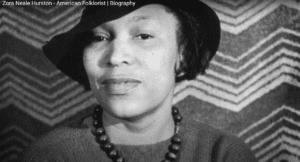 Zora Neale Hurston was a multifaceted writer who made significant strides in the realm of fiction,
Zora Neale Hurston was a multifaceted writer who made significant strides in the realm of fiction, 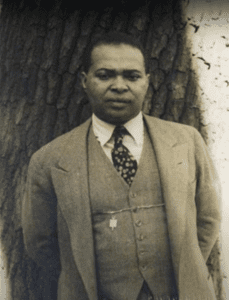 Countee Cullen was another prominent figure of the Harlem Renaissance, known for his eloquent poetry that often grappled with themes of identity, race, and cultural heritage. Cullen's work reflected his deep engagement with the complexities of being a Black artist in a predominantly white society. His poems often explored the duality of Black identity, a theme that resonated with many during the Harlem Renaissance and continues to be relevant today.
In his collection *Color*, Cullen grapples with the intersections of race and individuality, posing questions about the nature of Black existence in America. His ability to convey profound emotional depth while employing traditional poetic forms showcased his literary prowess and versatility. Cullen's exploration of identity and the search for belonging has left a lasting impact on both African American literature and the wider literary landscape.
As the Harlem Renaissance unfolded, these writers not only shaped the artistic landscape of their time but also laid the groundwork for future generations to explore and express their identities. Through their poetry and prose,
Countee Cullen was another prominent figure of the Harlem Renaissance, known for his eloquent poetry that often grappled with themes of identity, race, and cultural heritage. Cullen's work reflected his deep engagement with the complexities of being a Black artist in a predominantly white society. His poems often explored the duality of Black identity, a theme that resonated with many during the Harlem Renaissance and continues to be relevant today.
In his collection *Color*, Cullen grapples with the intersections of race and individuality, posing questions about the nature of Black existence in America. His ability to convey profound emotional depth while employing traditional poetic forms showcased his literary prowess and versatility. Cullen's exploration of identity and the search for belonging has left a lasting impact on both African American literature and the wider literary landscape.
As the Harlem Renaissance unfolded, these writers not only shaped the artistic landscape of their time but also laid the groundwork for future generations to explore and express their identities. Through their poetry and prose,  Agitation: The Impact of Neglecting African American Voices
The neglect of African American perspectives perpetuates systemic inequality and cultural erasure. It diminishes the societal understanding of issues like racial injustice, identity formation, and the richness of Black cultural expression. Ignoring this literary tradition not only distorts the past but also undermines the ability to address contemporary social challenges effectively.
Agitation: The Impact of Neglecting African American Voices
The neglect of African American perspectives perpetuates systemic inequality and cultural erasure. It diminishes the societal understanding of issues like racial injustice, identity formation, and the richness of Black cultural expression. Ignoring this literary tradition not only distorts the past but also undermines the ability to address contemporary social challenges effectively.

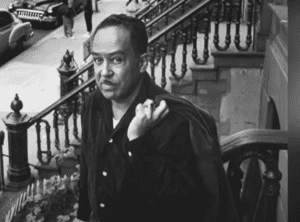 Frequently Asked Questions (FAQs) About African American Literary Criticism
1. What is African American literary criticism?
African American literary criticism is the analysis and interpretation of literature by and about African Americans, focusing on themes of race, identity, oppression, and cultural heritage.
2. Why is African American literary criticism important?
It highlights the contributions of African American writers, uncovers marginalized
Frequently Asked Questions (FAQs) About African American Literary Criticism
1. What is African American literary criticism?
African American literary criticism is the analysis and interpretation of literature by and about African Americans, focusing on themes of race, identity, oppression, and cultural heritage.
2. Why is African American literary criticism important?
It highlights the contributions of African American writers, uncovers marginalized  To appreciate the contributions of contemporary African American writers fully, it is crucial to consider their historical context. The evolution of African American writing can be traced back to the early 19th century, with the emergence of slave narratives and abolitionist literature. Over the decades, African American writers have employed their craft to articulate the Black experience in America, responding to the socio-political climate of their times. From the Harlem Renaissance to the
To appreciate the contributions of contemporary African American writers fully, it is crucial to consider their historical context. The evolution of African American writing can be traced back to the early 19th century, with the emergence of slave narratives and abolitionist literature. Over the decades, African American writers have employed their craft to articulate the Black experience in America, responding to the socio-political climate of their times. From the Harlem Renaissance to the  Jesmyn Ward’s Poignant Stories
Jesmyn Ward’s work explores themes of poverty, racism, and resilience in the rural South. Her novels, including *Salvage the Bones* and *Sing, Unburied, Sing*, illuminate the struggles of African American communities through rich, lyrical prose. Ward’s focus on familial bonds and intergenerational trauma provides a deeply human perspective on systemic issues.
These contemporary African American writers exemplify the richness and diversity of modern African American literature. Their works not only elevate marginalized voices but also redefine the boundaries of storytelling, making significant contributions to both literature and cultural dialogue.
Jesmyn Ward’s Poignant Stories
Jesmyn Ward’s work explores themes of poverty, racism, and resilience in the rural South. Her novels, including *Salvage the Bones* and *Sing, Unburied, Sing*, illuminate the struggles of African American communities through rich, lyrical prose. Ward’s focus on familial bonds and intergenerational trauma provides a deeply human perspective on systemic issues.
These contemporary African American writers exemplify the richness and diversity of modern African American literature. Their works not only elevate marginalized voices but also redefine the boundaries of storytelling, making significant contributions to both literature and cultural dialogue.